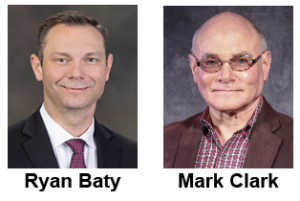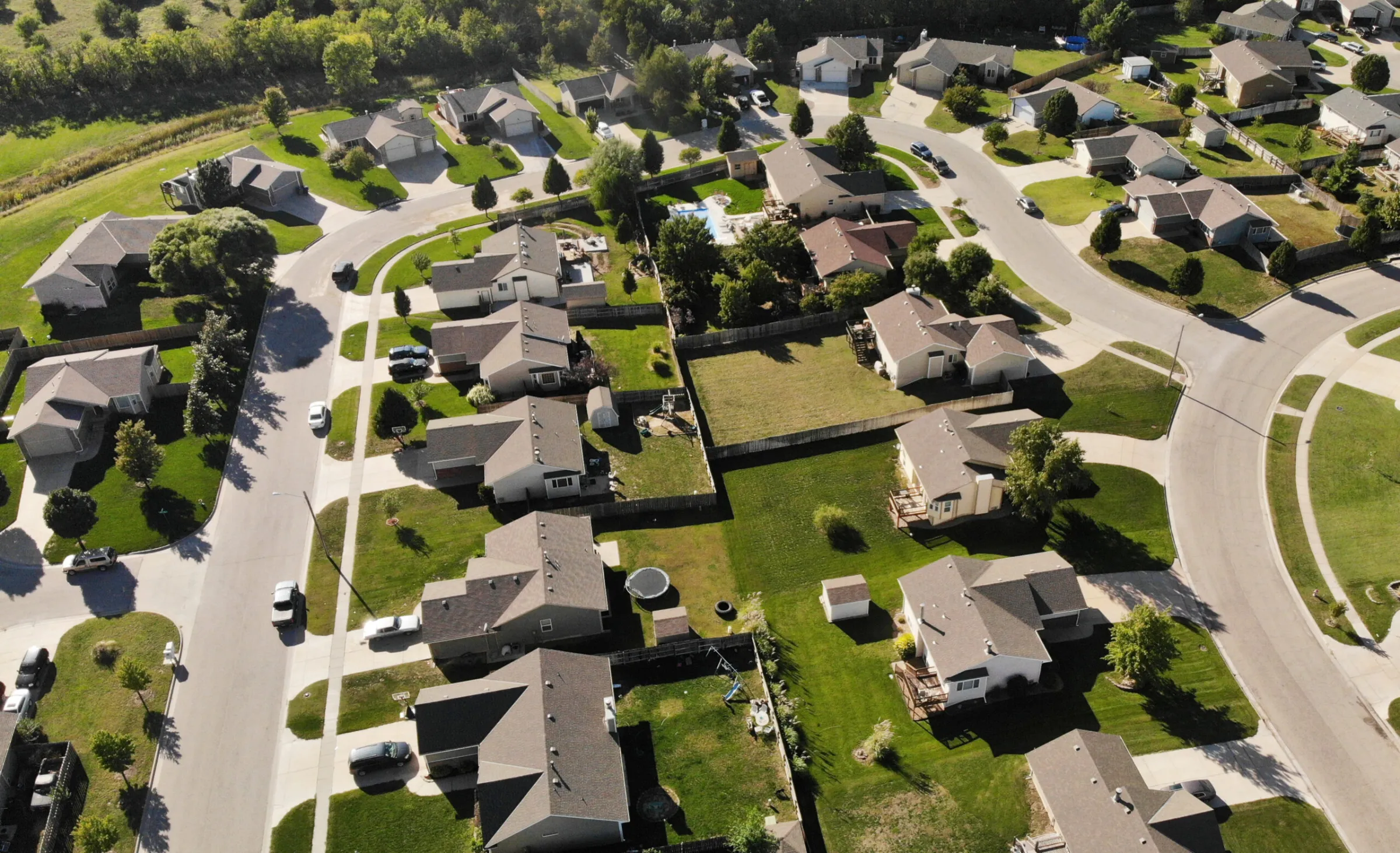Appeals of Sedgwick County’s new property appraisals were running almost double the volume of previous years through mid-March.
County Appraiser Mark Clark isn’t surprised. About 87% of residential property owners and 73% of commercial property owners saw an increase in their property valuations for 2025. Homes experienced an average increase of 9%, and commercial property values grew by 11% on average.
Residents had until March 31 to fill out an appeal form and file it with the county. Weeks ahead of that deadline, Clark said he knew his office would be busy with appeals this season.

“I’ll be honest with you, I thought it’d be a little higher,” Clark said of the number of appeals.
The median sale price for a home in Sedgwick County increased from $243,200 to $250,500 between 2024 and 2025.
During a presentation to the Sedgwick County Commission, Clark spelled out a variety of factors that sent property values up.
Sedgwick County, like markets across the nation, continues to feel the effects of supply chain issues, a labor shortage in construction and trade industries and inflation. Those factors are driving up the costs of building a home.
On top of that, federal interest rates and what Clark calls the golden handcuff effect — where homeowners feel chained to a property because it came with a low-interest rate mortgage — are keeping more people in their existing homes. Combined, these circumstances increase scarcity in an already tight housing supply moment and are driving up sale prices.
These national factors are colliding with a local issue. The Kansas Department of Revenue runs a check on appraisers across the state each year to make sure that their appraisals generally match the actual sale value of homes and properties. Appraisals are required to be somewhere between 90% and 110% of the actual sales price of a property to be considered in compliance.
Because the county was not recently in compliance, the state required it to increase valuations of property.
Baty said he knows these explanations offer little comfort for some residents. He said he’s heard in “hundreds of emails and messages and phone calls” about how appraisals are landing with households.
“There’s a lot of frustration,” Baty said. “People are concerned. They’re concerned because typically higher property valuations lead to higher property taxes and higher property insurances, and people are really feeling the squeeze.”
Baty said he’s not against seeing property values increase, but he was hoping for more “measured growth.” Baty said he was particularly concerned about how year after year of nearly double-digit increases impacts seniors and those on fixed incomes.
Last year, 60% of residential property owners saw an increase in their property appraisals. In 2023, 80% of property owners saw an increase. Appraisal values rose on average 8% in 2024 and 10% in 2023.
“These individuals are being priced out of their homes for nothing that they are doing,” Baty said.
“The path we’re on right now is not a path of sustainability, and people are really hurting,” Baty added. “I think we’re seeing diminishing returns in our community.”
Baty said constituents would likely see Sedgwick County government lower its mill levy rate again in the coming budget season. Though he recognized that Sedgwick County government has jurisdiction over only so much of residents’ tax bills.
The commissioner said of the roughly 170 taxing authorities in Sedgwick County, county government is typically only responsible for about 20% of residents’ total property tax bill.
Baty applauded the Kansas Legislature for making property tax reform a priority during this session, calling out two efforts in particular: one that would cap the amount of property tax dollars that could be levied by a taxing authority and another that would cap the amount property valuations can increase.
The first proposal, House resolution 2396, was passed by the House and is being considered by the Senate. The second proposal, Senate concurrent resolution 1603, has been passed by the Senate and is being considered by the House. Both would amend the state constitution if passed.
Baty said he was in favor of the first proposal but not the second. Baty said he did not believe “government should be involved in placing some sort of manipulative cap on our assets” and that the true pain point for residents was property taxes, not property valuations.
Both Clark and Baty said that they want residents to feel empowered to make use of the property appraisal appeal process. Clark said his office tries to make appeals as accessible as possible by handling them in person, by phone or through a new online portal.
Most years, appeals are filed for about 2% — or 4,200 — of county parcels. Clark said his office was on track to have almost double that amount this year.
Typically, about 50% of residential appeals are successful. Last year, successful residential appeals resulted in about an $18,900 decrease in the appraisal. Successful commercial appealers saw their appraisals drop about $45,000 on average as well.
If an appeal doesn’t work out, Clark and Baty suggested that residents look into property tax relief programs. The Kansas Department of Revenue offers three relief programs that each have an April 15 application deadline.
The first program is a homestead refund program for certain property owners with a household income of less than $42,000 and a home valued less than $350,000. This program offers up to $700 in property tax refunds.
A tax relief program for low-income seniors runs under the same act that established the homestead refund. Known as SAFESR, this program will grant a refund of up to 75% of the on-time property taxes paid by senior residents with a household income of less than $24,500 and a home value of up to $350,000.
The final program offered by the state is for seniors, disabled veterans and surviving spouses. Called the SVR program, the state will refund qualifying residents the property tax increase on their homes.
More information about each of these programs can be found at KSrevenue.gov/perstaxtypeshs.html.
Margaret Britton-Mehlisch is a reporter with the Wichita Journalism Collaborative. She can be reached at megbm@kmuw.org.









